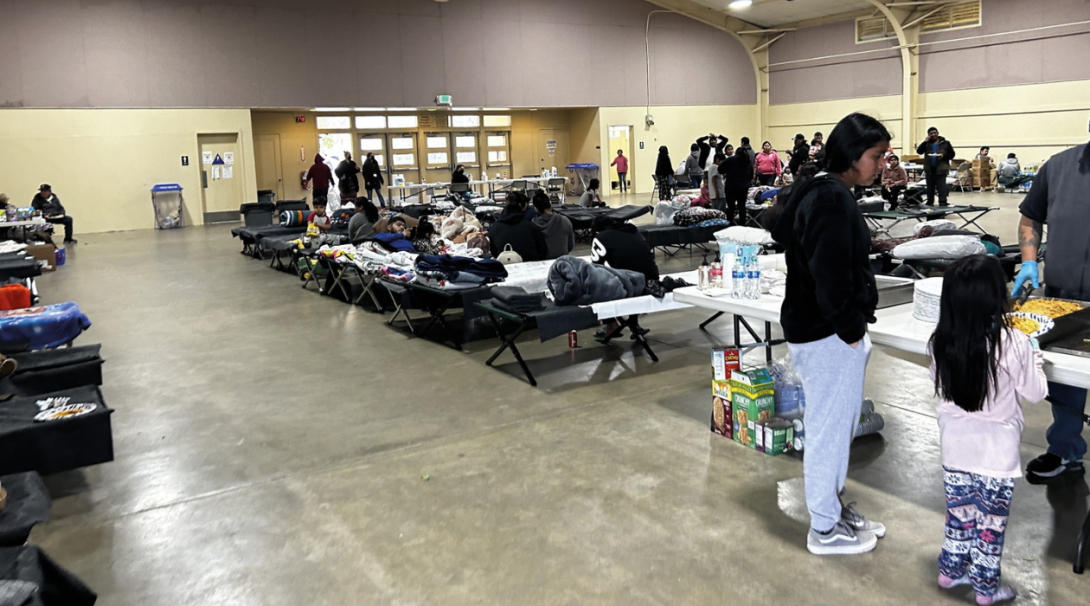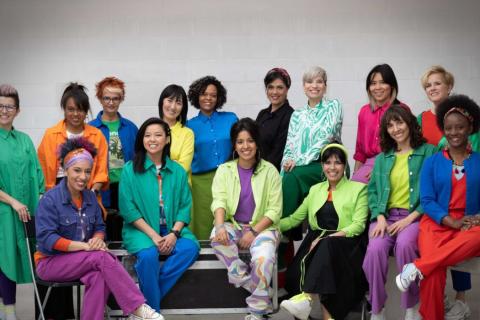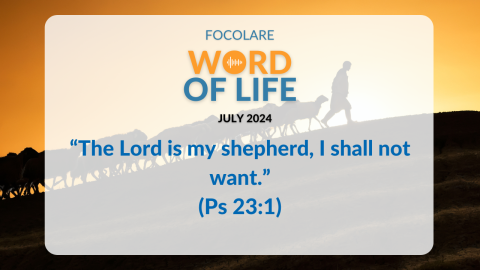
Photo by courtesy of Vivette and Larry Catipon
The Volunteers of God is a section of the Focolare Movement comprised of people from all social categories and professions who seek to bear witness to unity in society and in the world. In Chiara Lubich’s words, the Volunteers feel “the special vocation to permeate the things of this earth with the spirit of God.” In 2006, she reminded them that “the world is in need of credible people who are builders of a new humanity in the different spheres of society.” And challenged them to “aim at accomplishing God’s plan for humanity: universal fraternity.” At present, the Volunteers of God number around 20,000 worldwide.
Recently, several hundred Volunteers of God from North America gathered in Hyde Park, NY for a three-day convention. We are pleased to present an experience shared at that event by Vivette and Larry Catipon, Volunteers from Monterey, California. We have kept the interview style in which the experience was shared.
When you moved to Monterey, one of your first decisions was to choose which parish to join. Can you give us a quick sense of the parish that you joined?
Larry: We moved to the Monterey Peninsula in July 2022. We considered a couple of church communities, such as the cathedral in Monterey, but found that they are already well-supported and funded by parishioners. We thought that we ought to join a church community where we can help. St. Jude is a small and humble church with only about 400 registered parishioners. It was built in the sixties by military families from Fort Ord, which back then was the largest army base in the country.
Vivette, you had been working in that area for some time as a mental health consultant. But when you moved, you realized the needs of the homeless there and wanted to help.
Vivette: We are close to the ocean and nature’s bounty where we live, but seeing unhoused people camped near the beach and the trails tugged at my heart. When the rains started in January last year, I wanted to do something concrete and I happened to share it with a friend at church. She sent an email to friends in the parish and before we knew it, we had over thirty brand new sleeping bags, which we delivered to the Homeless Coalition. Then, in March, our area was hit with severe storms and a town about fifteen miles from where we live was completely flooded due to the levy breaking, causing 4,000 mostly migrant agricultural workers and their families to be homeless. A couple of our parishioners lived in this disaster area. I immediately accepted our priest’s request for Larry and me to collect donations from parishioners and coordinate the distribution of these goods. As part of my work, as well, in collaboration with local agencies, I was providing mental health support to the traumatized families.
So your first response was to collect money and needed items from the parish, but then you realized how great the need was and turned to the Volunteers of God?
Larry: I saw Vivette’s daily efforts. She was constantly buying diapers, food supplies, etcetera. She was calling hotels around the area checking for availability and soliciting charitable contributions. At this point, some of the Volunteers from outside the area expressed the desire to contribute. So we launched a campaign on the Focolare’s North American website to collect their monetary gifts.
We decided that it would be best to assist a couple of families instead of distributing the funds to many
What were you able to do with the donations from the Volunteers?
Vivette: We decided that it would be best to assist a couple of families instead of distributing the funds to many. Through my professional work, I had a list of families that had lesser access to relief resources due limited possibilities, such as language barriers. With the help of an interpreter who spoke Mixtec, we got to know a Mexican family that needed multiple items to rebuild and recover. With the money, we were able to purchase a washer, dryer, refrigerator, and couch to replace what was damaged during the floods. Another refrigerator and food items were purchased for a second family.
Larry, I understand you had quite an experience delivering one of the items purchased. Can you please tell us about that?
Larry: The family we were helping had a newborn baby. When Vivette went to visit the house, she started to feel ill and realized the couch they had was full of mold after being soaked from the flooding. So we wanted to get a couch that was water resistant and would be nice for this family as soon as possible. After shopping around, we found one for a good price; it was missing a sectional but looked really good. However, it was too long to fit in our SUV, so I called a couple of friends at the parish and we were able to pick it up and deliver it the next day. We didn’t have a translator that day, so we had to communicate through gestures when we needed to check out the connectors for the washer and dryer. When we situated the couch in their tight living room, the young kids jumped on it right away. It was truly an eye-opening and heartwarming experience for me and my friends who had not been to the area and had not seen the devastation.
Vivette, you were also helping in your professional capacity with an aid agency. You saw so much devastation, especially since the workers were initially cut off by the flood and then could not go into the fields for two months. How did you cope?
Vivette: To this day, I still feel emotional and teary-eyed as I reflect about this experience. This disaster could have been prevented; the levy that broke was already deemed in need of repair a couple of decades ago, but funding went to the neighboring more affluent areas. During that time, I often came home exhausted, and I would feel the guilt of privilege and the frustration with the systemic social injustices I witnessed. Prayer and the words of the gospel consoled me. I confided with a friend at church who was feeling the same way. We shared our experiences about the disaster and about witnessing the pain and struggles the victims were going through. Children and their families despaired for a long time as there was no work for the migrant agricultural workers. Being able to share our heartache and pray together helped me tremendously.
Did your response to the flood bear fruit in other ways?
Vivette: We now lead an outreach ministry currently consisting of about twenty members. We talk about not only gathering and sharing resources for the less fortunate in the community, but doing everything with love. Our first project was providing clothing and diapers to women and children at a couple of shelters in the area. I feel blessed, inspired, and energized by our church-friends’ willingness to help with so much joy. I thank God for this grace and the clarity of my purpose in life.










